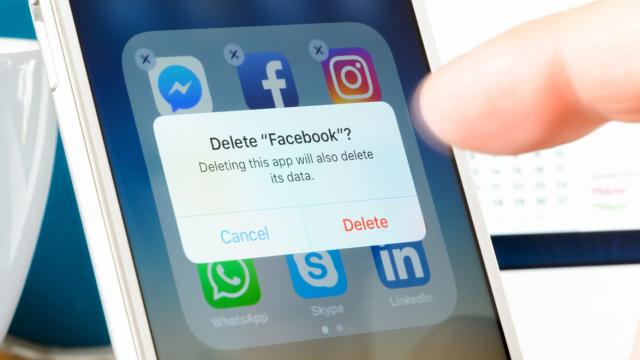It’s not just about your data – getting off Facebook can also reduce your stress levels, according to the latest study from a University of Queensland research team. You don’t even have to quit forever to see the benefits, either.
But, there’s a catch – and this study, which involved people giving up the Minions-meme sharing platform preferred by Aunts everywhere for less than a week – had a surprising mixed bag of results.
“Taking a Facebook break for just five days reduced a person’s level of the stress hormone cortisol,” said Dr Eric Vanman of the School of Psychology, who led the study.
There was a bit of a mixed result, though, as with the improvement in physiological stress by giving up Facebook, there were also lower feelings of well-being.
“People said they felt more unsatisfied with their life, and were looking forward to resuming their Facebook activity,” Dr Vanman said.
People felt less content with their lives from the social disconnection – being cut-off from their Facebook friends.
Wait – Facebook was actually making them happier, even though it was causing stress?
Abstaining from Facebook was shown to reduce a person’s level of the stress hormone cortisol, Dr Vanman said, but people’s own ratings of their stress did not change. Dr Vanman says maybe this is because they weren’t aware their stress had gone down.
“We don’t think that this is necessarily unique to Facebook, as people’s stress levels will probably reduce anytime they take a break from their favourite social media platforms,” Dr Vanman said.
Of the two groups in the study, one used Facebook as normal, while one stayed off for five days. All 138 participants provided saliva samples at the beginning and end of the study to measure changes in their cortisol levels.
The idea for the study came from Dr Vanman’s own experience of quitting Facebook from time-to-time.
“When I told colleagues about my ‘Facebook vacations’, I found I wasn’t alone,” he said. “Others admitted that they took similar breaks from Facebook when they found it too stressful or overwhelming – quitting Facebook for several days or weeks but then reconnecting.”
Dr Vanman says one of his students kept herself off Facebook by having her friend change her password so she wouldn’t be tempted to come back on – but eventually she broke down, and got the password from her friend after two months had passed.
“Facebook has become an essential social tool for millions of users and it obviously provides many benefits. Yet, because it conveys so much social information about a large network of people, it can also be taxing,” Dr Vanman explains.
“It seems that people take a break because they’re too stressed, but return to Facebook whenever they feel unhappy because they have been cut off from their friends. It then becomes stressful again after a while, so they take another break. And so on.”
Thanks, science.
[source]
